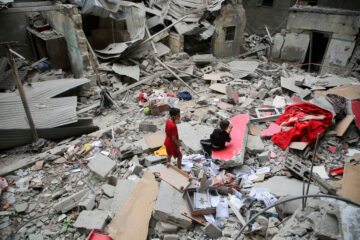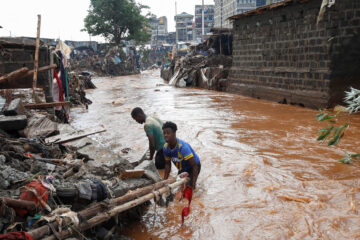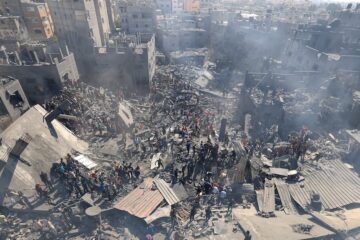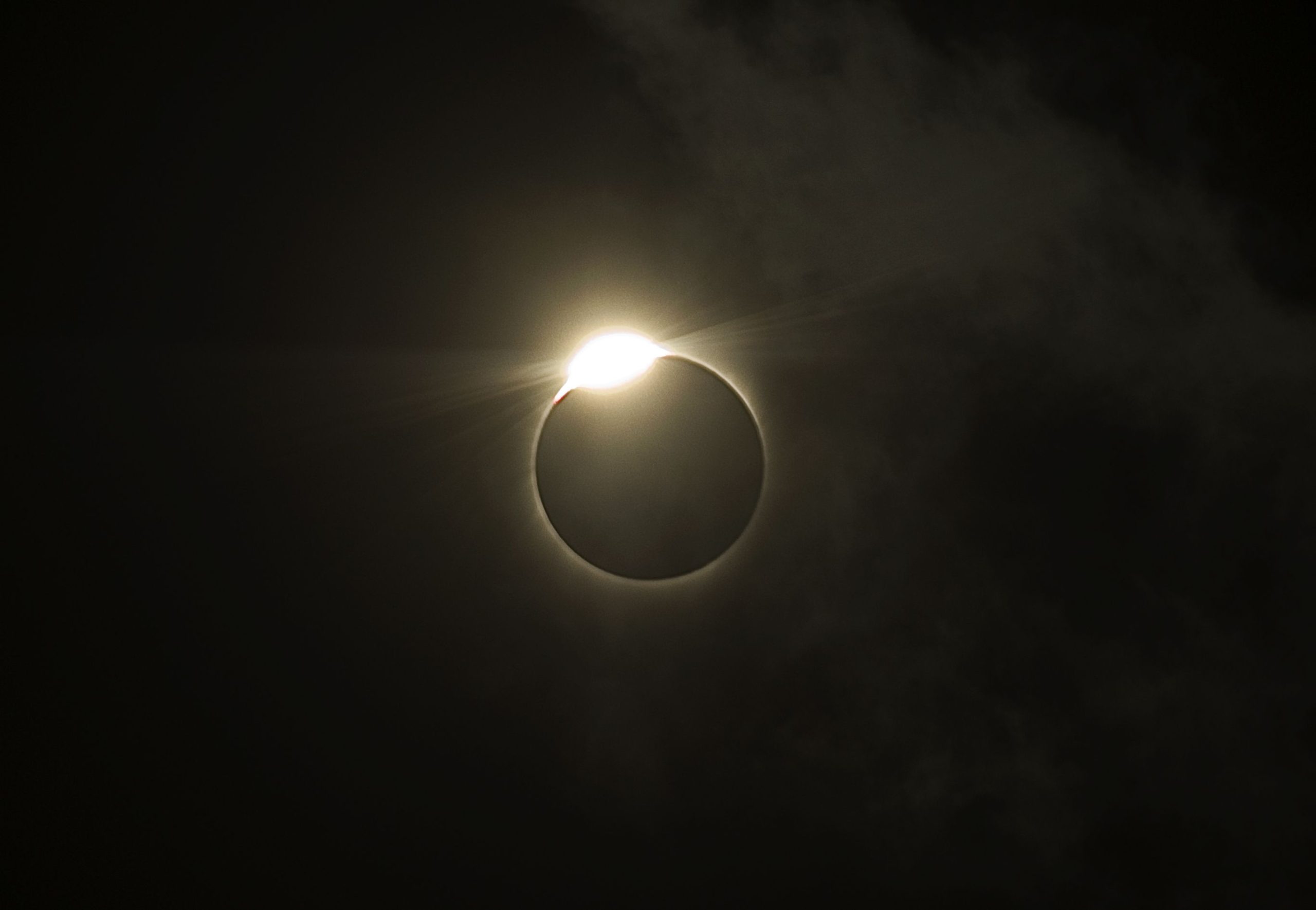Turkey carries out airstrikes after deadly bombing
Turkey\’s air force hit Kurdish rebel targets in northern Iraq Monday, hours after a suicide car-bombing in the capital killed 37 people and heightened tensions with the Kurdish rebels.
Nine F-16s and two F-4 jets raided 18 positions of the Kurdistan Workers\’ Party, or PKK in the northern Iraq, including the Qandil mountains where the group\’s leadership is based, the state-run Anadolu Agency reported. Targets hits consisted of ammunition depots, bunkers and shelters.
Police meanwhile carried out raids in the southern city of Adana, detaining suspected PKK rebels the agency reported. The private Dogan news agency said at least 36 suspects were taken under custody. Fifteen suspected Kurdish militants were also detained in Istanbul, Anadolu said.
Health Minister Mehmet Muezzinoglu said three more people died overnight from wounds suffered in the Sunday night attack that targeted buses and people waiting at bus stops at the heart of Ankara. Scores of others were injured.
Police on Monday blocked the boulevard where the attack targeting buses and people waiting at bus stops occurred, as forensic teams scoured the road — which is Ankara\’s main artery — for more clues.
A senior government official told The Associated Press that authorities believe the attack was carried out by two bombers — one of them a woman — and was the work of Kurdish militants. He spoke on condition of anonymity because the investigation is continuing.
It was the second deadly attack blamed on Kurdish militants in the capital in the past month and President Recep Tayyip Erdogan vowed to bring "terrorism to its knees."
On Feb. 17, a suicide car-bombing in the capital targeted buses carrying military personnel, killing 29 people. A Kurdish militant group which is an offshoot of the PKK, claimed responsibility.
Sunday\’s blast came as Turkey\’s security forces were set to launch large-scale operations against militants in two mainly Kurdish towns — Yuksekova, near the border with Iraq and in Nusaybin, which borders Syria — after authorities imposed curfews there, prompting some residents to flee. The military deployed large numbers of tanks near those towns as the curfews were announced.
Authorities on Monday announced another curfew, to go into effect at 2100 GMT in the city of Sirnak, near the border with Iraq, signaling that the military was also preparing to battle Kurdish militants there.
Turkey has been imposing curfews in several flashpoints in the southeast since August to root out militants linked to the PKK, who had set up barricades, dug trenches and planted explosives. The military operations have raised concerns over human rights violations and scores of civilian deaths. Tens of thousands of people have also been displaced by the fighting.
Last week, Turkey\’s military ended a three-month operation against the militants in the historic Sur district of Diyarbakir — the largest city in the country\’s mostly Kurdish southeast. On Sunday, authorities eased the curfew in some streets and one neighborhood of Sur, but the siege over the district\’s main areas was still in place.
The PKK has been designated a terrorist organization by Turkey, the U.S. and the European Union. A fragile peace process between the PKK and the Turkish state collapsed in July, reigniting a battle that has cost tens of thousands of lives since 1984.
Ankara residents rushed to hospitals and morgues for news of missing loved ones.
Ridvan Baskiran said he went to several hospitals searching for his cousin Kubra Pekgenc who was working at a mall near the blast scene.
"We kept trying to call her but it was ringing busy," Baskiran said. "We went around from hospital to hospital and we finally found her. She had brain surgery."
SOURCE: AP
[do_widget_area inner_adsbar]










